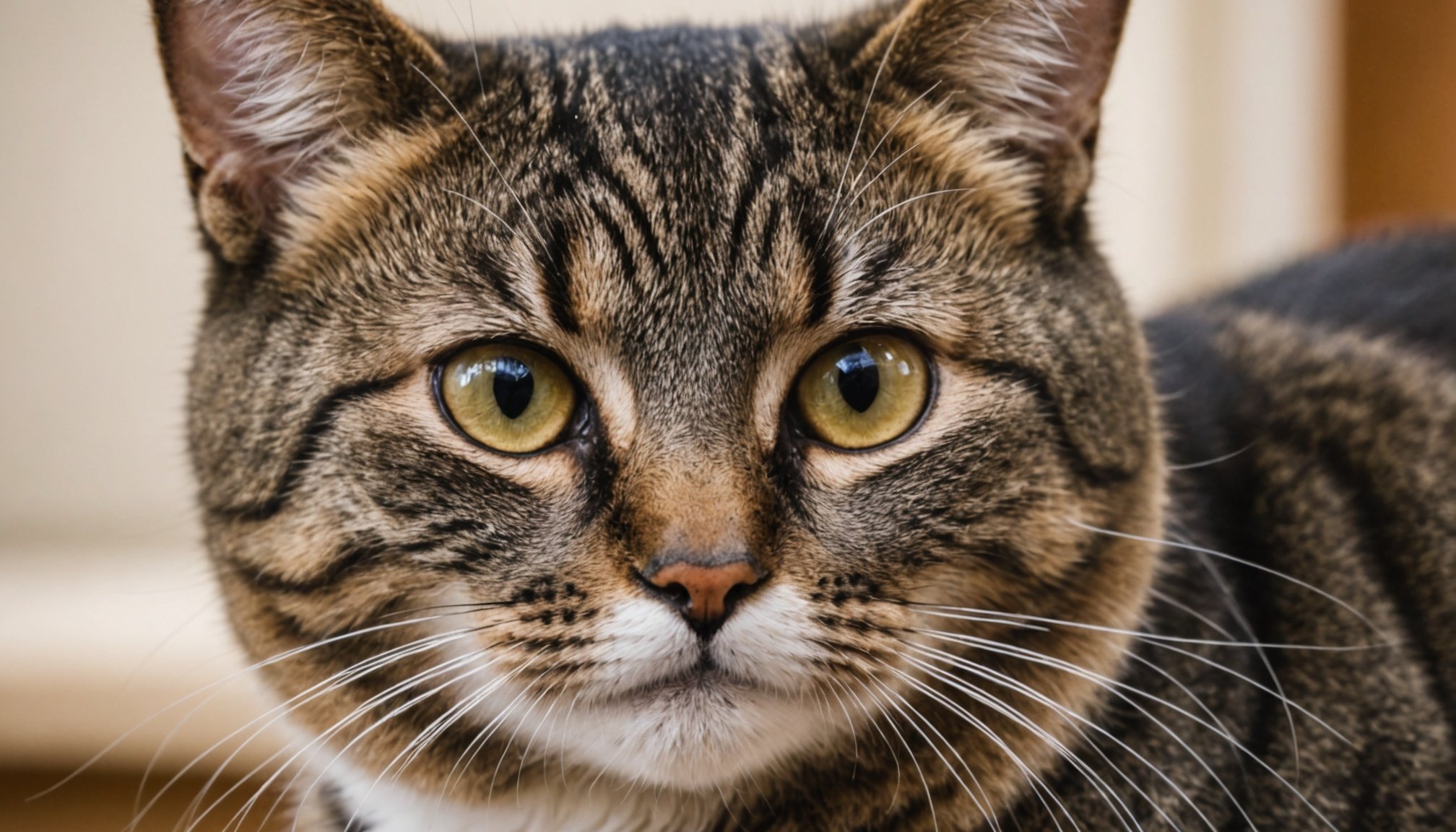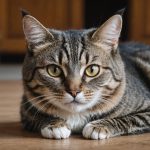Unlocking Innovative Solutions for Managing Chronic Kidney Disease in Aging Cats
Managing chronic kidney disease (CKD) in aging cats is a complex and challenging task, but recent innovations and natural supplements are offering new hope for pet owners. In this article, we will delve into the latest solutions, dietary changes, and supplementary treatments that can significantly improve the quality of life for your feline friend.
Understanding Chronic Kidney Disease in Cats
Chronic kidney disease is one of the most common health issues affecting older cats. It is a progressive condition where the kidneys gradually lose their ability to filter waste products from the blood, leading to a buildup of toxins. This disease can be devastating for both cats and their owners, as it often results in symptoms such as increased thirst, frequent urination, poor appetite, weight loss, and low energy[3].
Also read : Ultimate tips for bathing your bichon frise with sensitive skin: a safe and smart approach!
Signs and Symptoms
Identifying the signs of CKD early is crucial for effective management. Here are some key indicators to watch out for:
- Decreased Activity Levels: Cats with CKD or osteoarthritis may avoid activities like jumping or climbing.
- Increased Resting Time: More naps and less interaction could indicate joint pain or discomfort.
- Difficulty Moving: Stiffness, limping, or hesitation before jumping can signal joint issues.
- Weight or Muscle Changes: Cats with CKD often lose muscle mass, even if their weight remains the same[1].
Dietary Changes for Managing CKD
Diet plays a critical role in managing CKD in cats. Here’s how you can adjust your cat’s diet to support their renal health:
Also to see : What should you consider when choosing a diet for your pet tortoise?
Specialized Kidney Diets
Feeding your cat a specialized kidney diet can make a significant difference. These diets are designed to reduce the workload on the kidneys by limiting non-essential amino acids, phosphorus, and sodium. For example, Hill’s c/d and k/d Early Support are highly recommended for cats with CKD. These foods have:
- High-Quality Protein: Moderately restricted to minimize waste products.
- Restricted Phosphorus and Sodium: To ease the kidney’s workload.
- Increased Omega-3 and Omega-6 Fatty Acids: To support overall health.
- Increased Calories and Water-Soluble Vitamins: To ensure adequate nutrition without overloading the kidneys[4].
Gradual Diet Transition
Changing your cat’s diet should be done gradually to avoid digestive upset. Here’s a step-by-step guide:
- Start with Small Changes: Mix a small amount of the new food with their current diet.
- Gradually Increase the New Food: Over several weeks, increase the proportion of the new food.
- Monitor Their Health: Ensure your cat is adjusting well and not showing signs of illness or discomfort[4].
Innovative Supplements for CKD Management
Besides dietary changes, several innovative supplements are now available to support your cat’s renal health.
MYOS with Fortetropin® and Green-Lipped Mussel
MYOS is a groundbreaking supplement that helps build and maintain lean muscle mass in cats, which is particularly beneficial for those with CKD. Here’s what makes MYOS special:
- Fortetropin®: Derived from fertilized egg yolk, it inhibits myostatin, a protein that limits muscle growth. This helps your cat develop and retain muscle mass without putting additional stress on the kidneys[1].
- Green-Lipped Mussel: Rich in anti-inflammatory properties and Omega-3 fatty acids, it supports joint health and flexibility, helping to regenerate lost cartilage and tendons[1].
A study conducted by North Carolina State University found that 67% of cats with CKD who were given Fortetropin® experienced an increase in lean muscle mass without any adverse side effects. This is a significant breakthrough, as it not only improves mobility but also enhances the overall quality of life for cats with CKD[1].
NHV Natural Pet Products for Kidney Support
NHV Natural Pet Products offers a comprehensive kit designed to support cats with CKD.
Key Components of the NHV Kidney Support Kit
The kit includes several supplements that work together to support renal health:
- Tripsy™: Contains herbal ingredients like Stone Root, Parsley Piert, and Gravel Root to prevent kidney stones and support kidney function.
- Milk Thistle: Known for its antioxidant and detoxifying properties, it helps eliminate toxins and promote cellular regeneration.
- Turmeric: Offers anti-inflammatory, antioxidant, and other beneficial properties to aid in detoxification and healing.
- Omega 3 Fish Oils: Reduces inflammation and helps reduce proteinuria (protein lost through urine)[2][3].
Practical Insights and Actionable Advice
Here are some practical tips and advice for managing CKD in your cat:
Regular Veterinary Check-Ups
Regular wellness exams starting at 8 years of age are crucial for early detection of CKD. These exams should include blood and urine samples to monitor kidney function and detect any early signs of disease[4].
Pain Management
Cats with CKD often experience joint pain and discomfort. Supplements like MYOS, which include green-lipped mussel, can help in pain management by reducing inflammation and supporting joint health[1].
Hydration and Nutrition
Ensuring your cat stays hydrated is vital. Encourage water intake by using multiple water sources and making water more appealing. Also, feed a balanced and nutritious diet that is easy to digest, as recommended by your veterinarian[4].
Table: Comparing Key Supplements for CKD Management
| Supplement | Key Ingredients | Benefits | Form |
|---|---|---|---|
| MYOS | Fortetropin®, Green-Lipped Mussel | Muscle growth, joint support, anti-inflammatory | Powder |
| NHV Tripsy™ | Stone Root, Parsley Piert, Gravel Root | Prevents kidney stones, supports kidney function | Liquid |
| NHV Milk Thistle | Silymarin | Antioxidant, detoxifying, promotes cellular regeneration | Liquid |
| NHV Turmeric | Curcumin | Anti-inflammatory, antioxidant, aids in detoxification | Liquid |
| NHV Omega 3 Fish Oils | Omega-3 fatty acids | Reduces inflammation, helps reduce proteinuria | Liquid |
Quotes from Experts
- “Chronic kidney disease is one of the most common conditions in pets, especially in cats. Supporting your pet’s kidneys with gentle all-natural supplements can help them with symptoms of kidney disease and improve their quality of life,” – NHV Natural Pet Products[2].
- “The clinical trials investigate a wide range of things, among them the genetic basis of diabetes in cats, inflammatory bowel disease in both dogs and cats, chronic kidney disease in cats… These studies help provide better therapy and financial incentives for pet owners,” – Carol Frederick, Licensed Veterinary Technician Specialist[5].
Managing chronic kidney disease in aging cats requires a multifaceted approach that includes dietary changes, innovative supplements, and regular veterinary care. By understanding the signs and symptoms, adjusting your cat’s diet to a specialized kidney diet, and incorporating supplements like MYOS and NHV’s Kidney Support Kit, you can significantly improve your cat’s quality of life.
Remember, early intervention is key. Regular wellness exams and a proactive approach to your cat’s health can make all the difference in managing CKD. As a pet owner, it’s comforting to know that there are natural, holistic solutions available that can help your feline friend live a healthier, happier life despite the challenges of chronic kidney disease.









